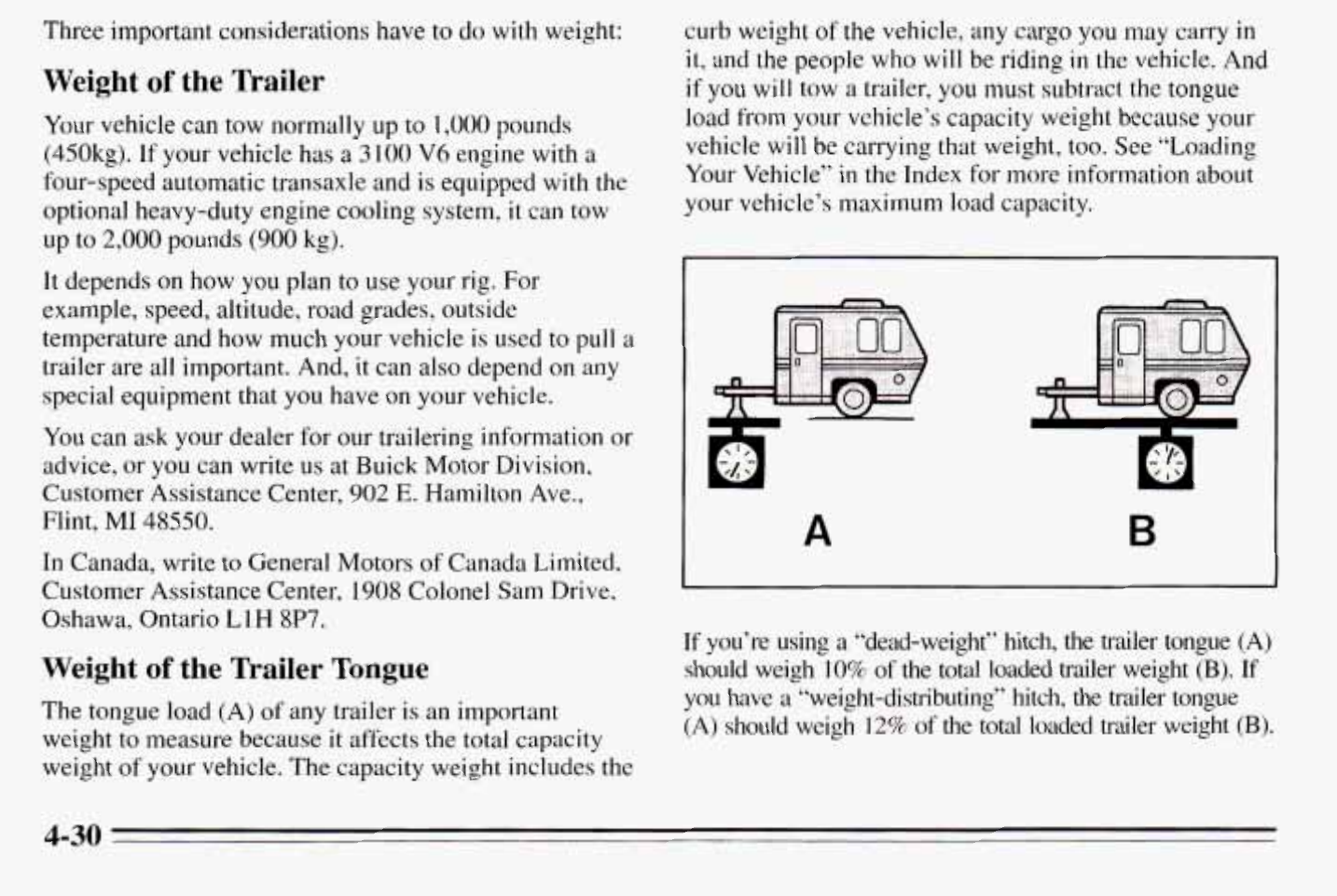
Three important considerations have to do
with
weight:
Weight
of
the
nailer
Your vehicle
can
tow normally
up
to
1,000
pounds
(450kg).
If
your vehicle has
a
3
100
V6
engine with
a
four-speed automatic transaxle and is equipped with the
optional heavy-duty engine cooling system,
it
can tow
up
to
2,000
pounds
(900
kg).
It
depends on how you plan to use your rig. For
example, speed, altitude, road grades, outside
temperature and how
much
your vehicle is used to
pull
a
trailer are
all
important. And,
it
can
also
depend
on
any
special equipment that you have
on
your vehicle.
You can
ask
your dealer for our trailering information or
advice, or you can write
us
at Buick Motor Division,
Customer Assistance Center,
902
E. Hamilton Ave.,
Flint,
MI
48550.
In
Canada, write to General Motors
of
Canada Limited,
Customer Assistance Center, 1908 Colonel Sam Drive.
Oshawa, Ontario
L
1
H
8P7.
Weight
of
the
Trailer Tongue
The tongue load (A)
of
any trailer is an important
weight
to
measure because
it
affects the total capacity
weight
of
your vehicle. The capacity weight includes the
curb weight
of
the vehicle, any cargo
you
may
carry
in
it,
and
the people who will be riding
in
the vehicle. And
if
you
will tow
a
trailer,
you
must
subtract the tongue
load from your vehicle’s capacity weight because your
vehicle
will
be carrying that weight, too. See “Loading
Your Vehicle’’
in
the Index
for
more information about
your vehicle’s maximum load capacity.
A
B
If you’re using a “dead-weight” hitch, the trailer tongue (A)
should
weigh
10%
of
the total loaded trailer weight
(B).
If
you have a “weight-distributing” hitch, the trailer tongue
(A)
should weigh
12%
of
the total loaded tmiler weight (B).
4-30


















